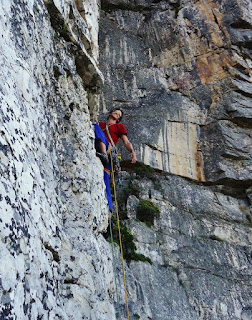I get quite frustrated with one of my favourite writers, Maria Popova, 'debunking' the 10,000 hour rule popularised by Malcolm Gladwell in Outliers. At no point does Gladwell say that 10,000 hours of aimless time spent on a task will lead you to being world class. I believe he uses the examples of driving and sex as things we may spend a lot of time doing but not improving. Unless, of course, you remember to maintain eye contact with everyone you clink wine glasses with. But that won't help your driving. To improve your driving you actually have to try. Through purposeful practice.
I think the confusion comes because the thrust of Gladwell's point was that things take time no matter who you are. Even if you are good, you need to put the effort in. I am also a big believer that sometimes different skills are needed at the later stages of being awesome. Dan McLaughlin, who happens to be the same age as me, decided a few years back to put in 10,000 hours at golf having never played 18 holes. The further down the path he goes, the more psychological the training becomes. In the beginning you are laying the ground work and that can be tedious, so many people may choose to give up. They never get to the juice. Gladwell points to the strength required to push on through the tough bits. To put the time in. Purposeful practice and focus matter, but the idea that you have to put the time in matters too.
I thought Matthew Syed's 'Bounce' captured the ideas behind purposeful practice well, adding to 'Outliers'. Daniel Goleman's 'Focus' adds rigour to this rather than challenging any of the points. The best of the lot, in my view, is Mihaly Csikszentmihalyi's 'Flow' because it doesn't obsess about the 'world class' bit. Being world class is awesome because you get flow, but you start getting flow far earlier than when you get to the end. Flow isn't a competition. Everyone has something they love. If you love something and spend time on it in a purposeful way, you get better. That moment when you are doing something you love and it challenges you enough to have your full focus is flow. Flow is magic. I think the reason the world moves forward is because we all find flow in different places. The world would be a magic place if we managed to get to the point where, rather than to survive, we all work for flow.
The point that flow requires purposeful practice rather than slipping into automatic pilot is an important one, which is what I think Maria Popova is emphasising. In the workplace and in relationships we could benefit from more purposeful practice. The problem is that in these two places feedback is very hard to take. Feedback is essential to practice, but if how much you get paid (or whether you have a job) or whether someone breaks up with you is on the table - honesty and vulnerability becomes incredibly challenging and emotionally difficult.
Perhaps the answer lies in 'role play' and acting. If you are acting out scenarios with characters that aren't you, it gives you anonymity. The feedback can be harsh and you won't care. The great thing about being human is that we can learn through the mistakes of others. Even if we are those others - through acting. If we want to pursue flow in the workplace and in our relationships, I think we can learn lessons from all four of the books above. Like Dan, who decided he wasn't intrinsically 'the guy who can't play 18 holes of golf' and did something about it, we can choose who we are.






























